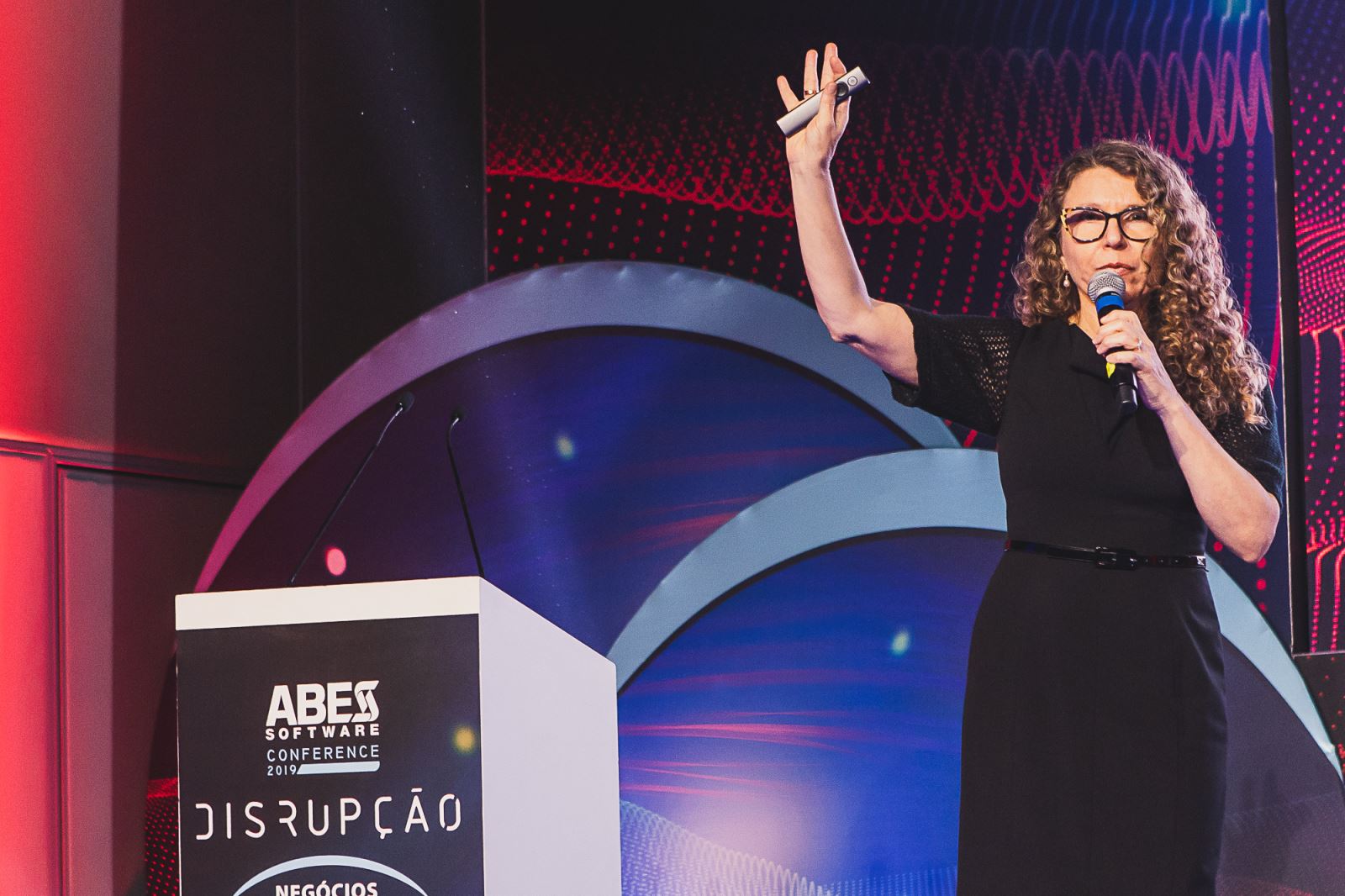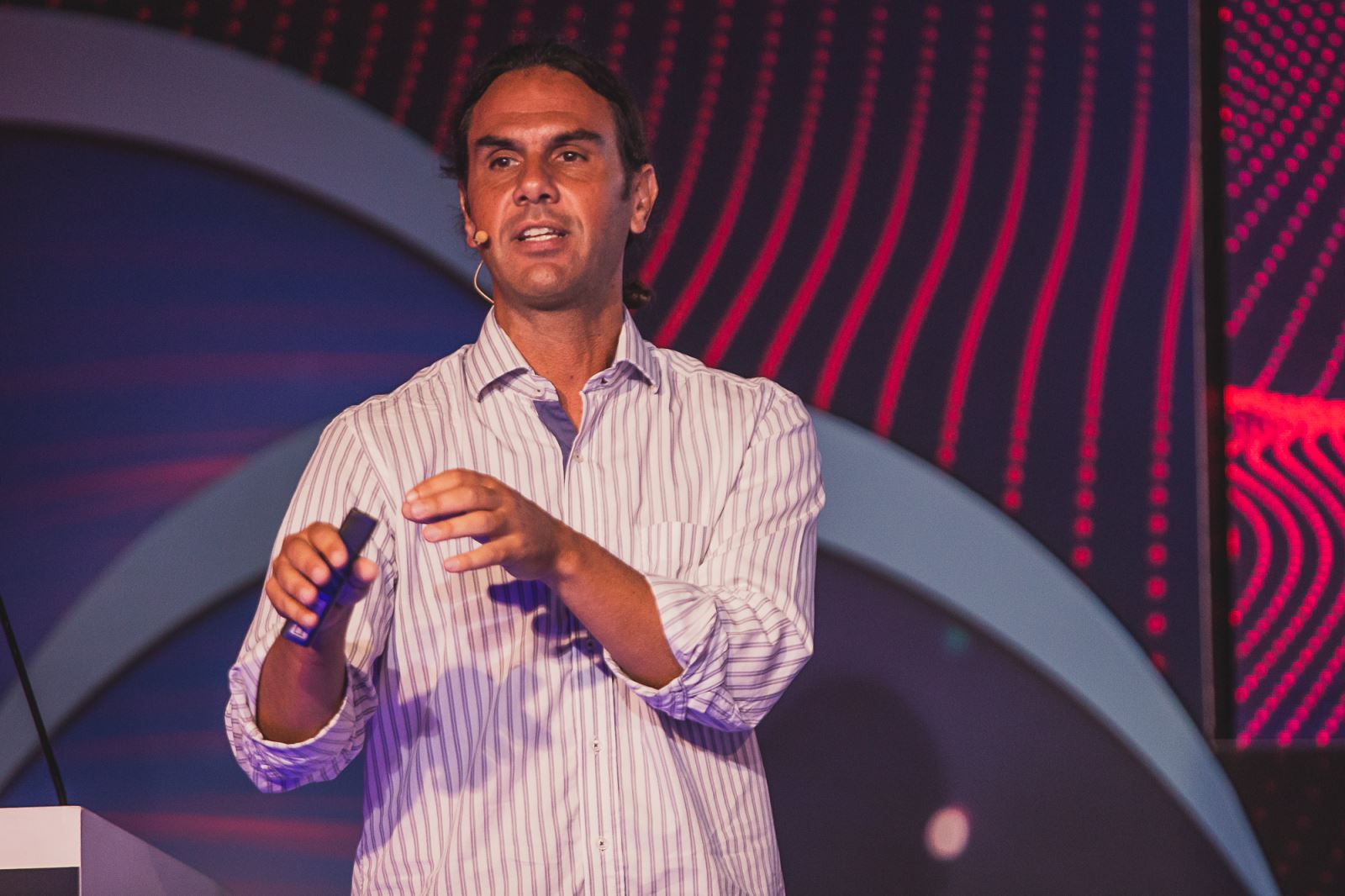Exponential business was the theme of one of the panels at the ABES SOFTWARE CONFERENCE 2019, held on October 14 at the São Paulo Corporate Towers Convention Center, in São Paulo, which included the participation of the founder and CEO of BayBrazil, Margarise Correa; the Executive Director of the Silicon Valley Bank's Global Gateway, Andrew Tsao; and Israeli IBI-Tech founder and CEO Daniel Skaba. They spoke about the paths of innovation in the two main innovation hubs in the world.
The panel was moderated by Gérson Schmitt, founder and chairman of the Board of Directors of Paradigma Business Solutions and member of the Board of Directors of ABES. The key issue was to discuss what, in fact, can be applied to the Brazilian reality based on the experience in Silicon Valley and Israel.
Margarise Corrêa, the CEO of BayBrasil, highlighted that talent and diversity are essential and outstanding components in Silicon Valley. “This region of California, USA, brings together important multinationals and has a culture totally focused on innovation and entrepreneurship. There are concentrated many investments for the creation and expansion of disruptive companies capable of revolutionizing the market. To get an idea of their diversity, 70% of companies have immigrants in senior leadership positions and 64% of Silicon Valley foreigners are from outside the US. Resource abundance is another aspect that generates innovation in the region. I believe these are some of the aspects that have transformed Silicon Valley into what it is today,” he explained.

Margarise stated that the Brazilian market is very relevant for Silicon Valley. “There are Brazilian companies that operate in the Valley and are important to the region. Many companies there, in the last four years, have opened operations in Brazil, because they understand that this is a promising market for their growth. The opposite is also true, as there are several Brazilian companies operating in the Valley. As an example, it is possible to observe the success of Brazilians who work in Silicon Valley, such as Alex Dantas (Circuit Launch), Henrique Dubugras (Brex) and Mike Krieger (Instagram)”.
According to the CEO of BayBrazil, a growing number of highly qualified professionals have left cities like São Paulo, Campinas, Rio de Janeiro and Florianópolis for Silicon Valley. Among them are programmers, designers, product developers and data scientists.
Support for raising investments in Silicon Valley
Silicon Valley is one of the largest investment hubs in the world. According to a survey by consultancy PricewaterhouseCoopers, business financing in this region increased by 241TP1Q in the third quarter of 2018 compared to the second. But who invests money in Silicon Valley? They are investors of different types and companies.
Andrew Tsao, Executive Director of Bank of Silicon Valley's Global Gateway, explained how his financial institution operates in this scenario of growing investments and how it supports Brazilian companies. “We don't offer the same services that other banks do. We act to increase our customers' chances of success. When we arrived in Brazil – seven years ago – we saw that Brazilian startups and entrepreneurs were incredible and with great growth potential, which happened at a fantastic speed, despite the recession scenario that was installed in the national economy at that time. Today we have more than 250 Brazilian clients in our portfolio”, he highlighted.

In his presentation, the executive was affirmative, saying that if any company or startup wants to operate in Silicon Valley, the financial institution offers advice on local law and tax practices, appointing experts in accounting and law in the region, as they also point out the ways to obtain North American resources.
The Israeli Experience
In Israel, the number of companies focused on innovation is impressive. The country is made up of just under 9 million inhabitants and manages to have one of the largest per capita venture capital investments in the world. For comparative purposes, only the city of São Paulo has, today, around 12 million people. Given this market size, Israeli companies are born developing global products and services. Proof of this is that Israel is the second country with the highest number of companies listed on the Nasdaq. But what makes Israel this hotbed of innovation?
For Daniel Skaba, CEO of IBI-Tech, Israeli innovation expands to all sectors. “Existential needs, of size and geographic and political characteristics lead to the generation of solutions for different areas. This has taken Israel and exporting technology. A good example of this is that this country does not have an automobile factory. All cars there are imported. But there are in Israel more than four thousand startups focused on the automobile area”.

Skaba's experience leads him to be emphatic in stating that a strong union between the private sector and academia is necessary in the search for solutions. “Cooperation is the keyword for investment in an enterprise. The relationship with universities is one of the pillars to which we must pay close attention. If you don't have a university involved, solutions will be limited. On the other hand, the government needs to understand what the entrepreneur needs and, thus, offer conditions so that this entrepreneur can develop solutions”, he concludes.












